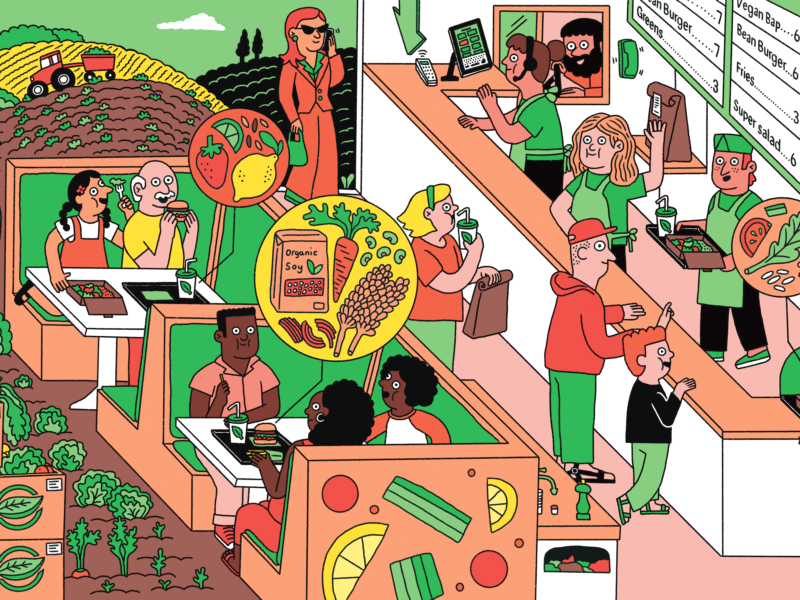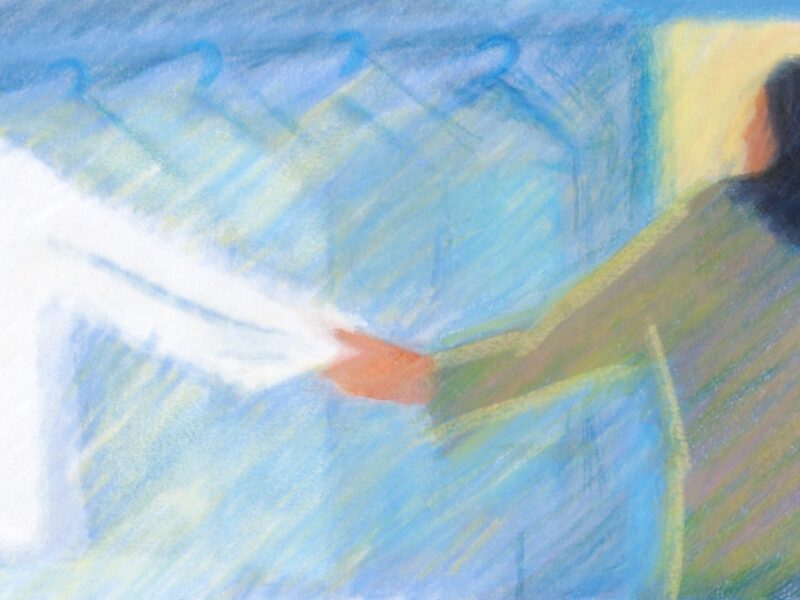The meme that was created to inspire Black women is now too often used to oppress them.
In her groundbreaking 1990 monograph Black Feminist Thought, sociologist Patricia Hill Collins argues that certain controlling images of the American Black woman—e.g., Mammy, Matriarch, Welfare Recipient, Jezebel, Unwed Mother—continue to pervade American culture and are still being used as tools of oppression. Social and government institutions in the United States continue to use these images, which work to perpetuate the erasure and oppression of Black women in a multitude of ways, limiting our rights and discrediting our experiences. Recent examples include: the faux right-wing uproar over Megan Thee Stallion and Cardi B’s WAP music video; and the previous U.S. president’s demonstrably false claim that the majority of welfare recipients were Black. These incidents crystallize the pervasiveness of the Welfare queen and Jezebel tropes in American public discourse.
In 2013 Satoshi Kanazawa, an American evolutionary psychologist at the London School of Economics, set off an international firestorm with a blog post for Psychology Today, in which he asserted that Black women were objectively less attractive than white women. The magazine deleted the article and ended its relationship with Kanazawa, while the LSE censured him with a ban on publishing articles that were not peer reviewed. But the impact of Kanazawa’s post, excerpts of which were reprinted in other publications, continued to echo. Partly in response to the incident, CaShawn Thompson, a Washington, D.C.-based teacher, activist, and social media influencer, created the hashtag #BlackGirlMagic—to celebrate the value and accomplishments of Black women. “Each one of us,” Thompson said, “needed something that was all the awesomeness that we are.”
#BlackGirlsMagic has since become an American cultural phenomenon. It followed a remarkable trajectory, from a Twitter hashtag to a rallying cry and an aphorism. Today it is cited when referring to accomplishments ranging from the incredible gymnastic feats of Simone Biles to surviving another day in a workplace that is hostile to Black women. Celebrities like ballerina Misty Copeland, Barack Obama, Solange Knowles, and Michelle Obama often use the phrase when referring to the outsize accomplishments of Black women.
More recently, however, the slogan has become something less positive. In its current usage, it often acts to perpetuate the very archetypes—Mammy, Matriarch, Emasculator—that Patricia Hill Collins identified more than 30 years ago. Black Girl Magic now too often provides cover for the continued dehumanization of Black women. It also functions as a means of deflecting attention from the fact that to succeed and be recognized, Black women must still work infinitely harder than their white counterparts.
When Stacy Abrams’s voter registration drive delivered Georgia to the Democrats in the 2020 election, social media users and major media outlets referred to her accomplishment as Black Girl Magic. Similarly, the phrase was used to describe gymnast Simone Biles’s paradigm-shattering athleticism. When Serena Williams won the 2017 Australian Open while pregnant, Black Girl Magic was there. Even in my academic circle of Black women, we use Black Girl Magic to celebrate our publications and invited talks. But even as we celebrate our accomplishments, we fail to grapple adequately with the fact that racist, unjust institutions withhold recognition from all but the superhuman amongst us—and even then, that recognition often comes with insults.
To be sure, there have been waves of support for Biles, Osaka, Abrams, and Williams as they publicly battled racism, misogyny, and the stigma of mental health concerns. Their actions have sparked national conversations, particularly Biles and Osaka’s for their stance on athletic performance and mental health. But the personal cost of being open about their struggles has been high.
In a recent feature about Simon Biles in The Houston Chronicle, for example, the gymnast says she regrets that the artistry in her dance routines often goes unnoticed because the focus is on her strength and athleticism. Also interviewed for the article is Lauren Anderson, a former principal dancer with the Houston Ballet, who expresses her admiration for Biles’s sense of rhythm and movement. But while the body of the article does include several references to Biles’s artistry, the headline describes her athleticism as “beastly.”
Serena Williams, widely recognized as one of the greatest female tennis players in history, has for years had to defend herself against the demeaning accusation that she looks “too masculine.” She has, for example, been called the “n” word multiple times while competing, and she has been dehumanized and belittled in sports news cartoons. In an interview, Serena discussed the toll such comments took her. She said: “It was hard for me. People would say I was born a guy, all because of my arms, or because I’m strong.”
In Georgia, a conservative political group called Heritage Action is suing Stacy Abrams for the $100 million loss of the Major-League Baseball All-Star game, which relocated from Atlanta because she called for a boycott to protest state voter repression. Abrams’s feat of Black Girl Magic was made necessary by the blatant repression of minority voters in Georgia, which cost her a historic victory in the 2018 Georgia gubernatorial race.
Black Girl Magic marks the discursive transition of Black women from social problems to social saviors. Denigrated since the Reagan years as welfare queens and hoochie mamas, they are also widely identified as an essential element of American infrastructure. And just like all America’s infrastructure, Black women are taken for granted until there is a disaster. Time and time again, they save this country from itself—as Stacey Abrams is often credited with protecting democracy in Georgia. With the voting rights bill currently stalled in Congress, her approach to voting rights protections is one of the few options left to activists who are forced to compensate for the federal government’s incompetence.
Black athletes are celebrated when they bring praise and athletic glory to the United States, but when they show themselves as humans who need self-care, they become pariahs. Serena Williams and Simone Biles are widely praised for their unparalleled athletic strength. But when they seek to defend themselves from harm and own their labor, they face howls of outrage and charges of mediocrity. When Naomi Osaka quit the French Open because she refused to participate in the pre-match press conferences that exacerbate her anxiety and depression, the powerful blowback—from tournament officials and fellow athletes—prompted her to withdraw from competition. The fact that Osaka is one of the highest ranked tennis players and one of the highest-paid female athletes in the world was irrelevant to her detractors. Her refusal to labor for them on the court or in the press room was an affront. Her mental health be damned.
When Biles, whose status as the greatest gymnast of all time is undisputed, cited mental health issues for her decision to withdraw from the team finals at the Tokyo Olympics, right-wing male commentators targeted her with vicious personal attacks. Aaron Reitz, Deputy Attorney General of Texas, tweeted that Biles, who is a native of his state, was a “selfish, childish, national embarrassment.” This is how white men perceive Black women and their labor: Their bodies, their minds, and their work are not their own.
The men tweeting their anger at Biles for wearing the decal of a goat’s head (symbolizing the acronym GOAT for “greatest of all time”) on her leotard show that, to them, it is an affront for a Black woman to be not only ambitious, but also to know her power and do with it as she pleases. Simone Biles owes us nothing. And yet, she postponed her retirement because she was the last of Larry Nassar’s victims still on the team, and she believed her testimony would lend weight to the accusations against the since- convicted sports medicine physician who abused female gymnasts for decades. While mental health is an important and overdue discussion in athletics more broadly, we must realize that Black women’s ownership of their labor is an equally important issue.
Once a paradigm to help Black women reclaim their power, Black Girl Magic has become the newest controlling image for Black women. When hard work is described as “magic,” our education, training, preparation, and labor are demeaned. Our femininity is questioned. Or, worse, refusing to sacrifice ourselves on the altar of capitalist productivity is perceived not as our right to exercise personal choice, but as an affront.
Since the George Floyd protests in the summer of 2020, institutions and businesses from Apple to McKinsey, the global management consulting firm, have championed and turned to diversity and inclusion initiative. Yet across social media, Black women have lamented the labor of participating in such diversity clinics, explaining to their white coworkers how to be “anti-racist,” or publicly displaying and discussing the trauma of their oppression—allegedly for their own benefit. These requests are predicated on a flaw in ally logic: Teach us how not to be racist toward you, or it is your fault we are racist. Dr. Marc Lamont Hill’s recent interview with Robin DiAngelo about critiques, including Balck critiques, of her work speaks to the general feelings of Black women about the labor diversity requires. The Twitter responses depict the greater issues of the monetization of anti-racist work Black people have been doing, for free, for decades.
I often wonder how we as Black women can reclaim what the aphorism originally meant to us. Biles and Naomi Osaka have given us public permission to say “no” as a complete sentence. To say “no” to the corporate diversity committee. To say “no” to leading the White Fragility reading group. Black women: Do and refuse to do what you choose. Imagine if every Black woman took a day to herself at the same time. Atlas shrugged.
Those who say they are allies need to understand that one of the best ways to value Black women is to do the work. If people were listening to and learning from Black women, the demands on our time and labor would decrease. The onus on saving democracy in the United States, of winning an Olympic gold medal, and of grappling with racism in academic departments should not rest solely on the shoulders of Black women. We, as a country, must hold institutions—Olympic, government, educational, and media—responsible for how they portray Black women and for the demands they project onto us. To be an ally to Black women is to recognize the numerous burdens we carry and to tackle them with us—or, even better, to use your privilege to confront the structures that continue to do harm. “Listen to Black women” echoes across social media, yet it must be more than just a meaningless slogan.
Fannie Barrier Williams, the Black suffragist and educator who lived from 1855-1944, wrote in an essay for The Voice of the Negro (1905) that, “As meanly as [the Black woman] is thought of, hindered as she is in all directions, she is always doing something of merit and credit that is not expected of her.” More than a century later, Black women continue to surpass expectations. But as Biles, Williams, and Osaka have shown us, we must do an accounting of the incredible costs of these feats. Our accomplishments seem like magic because of the obstacles we must overcome to realize them. Now we are tired. We are disregarded. We are taken for granted. Yes, the tide is clearly changing. Let us hope that Black Girl Magic becomes our term not only for the accomplishments of Black women, but also the term for their decision to embrace radical self-care and claim ownership of their humanity.



